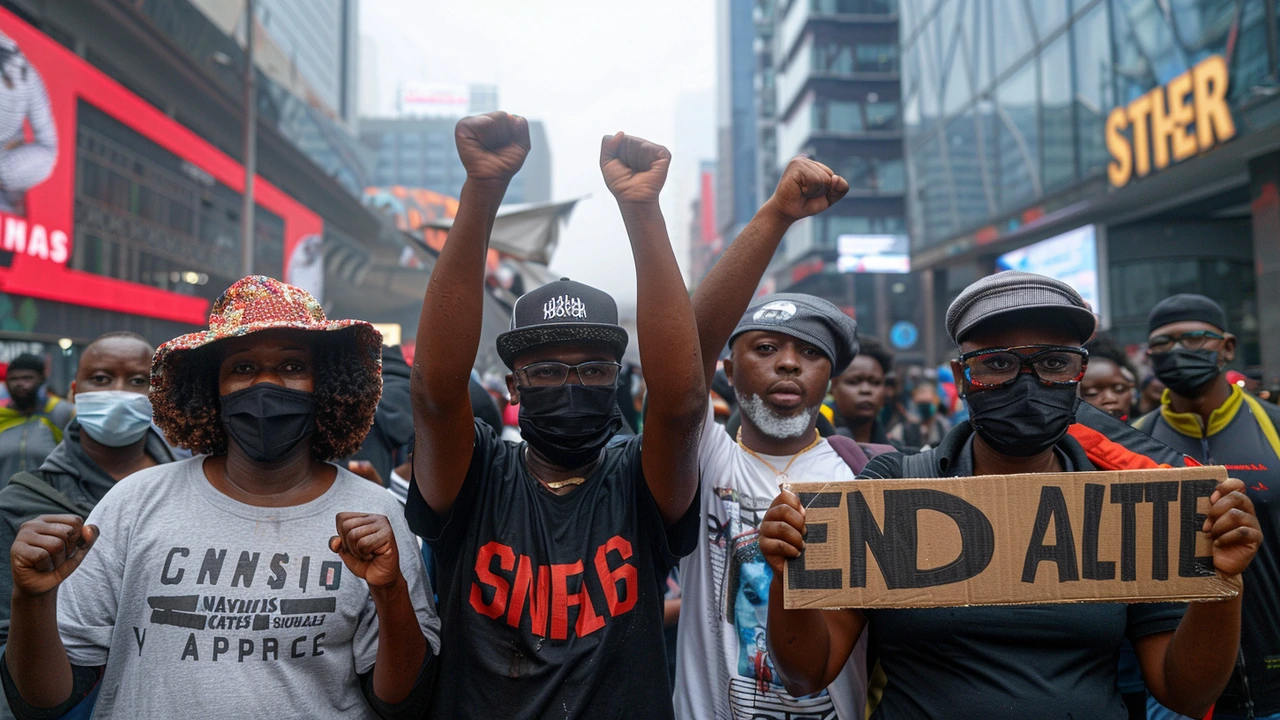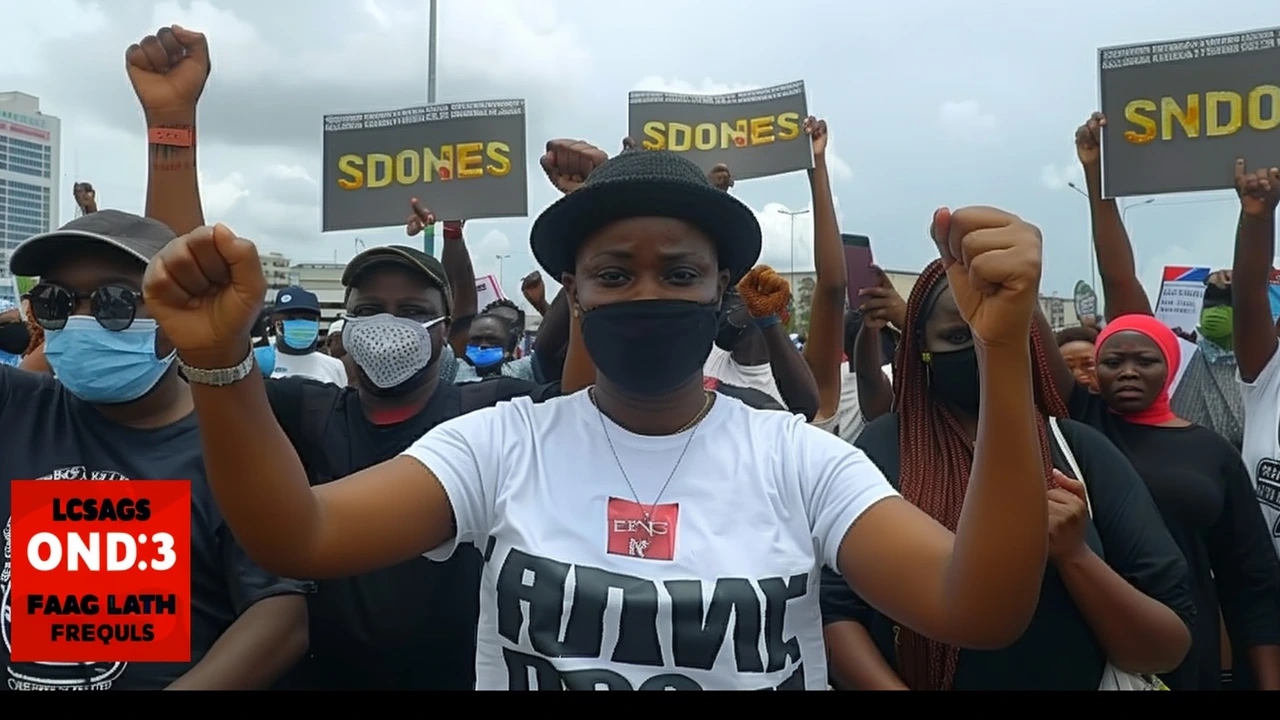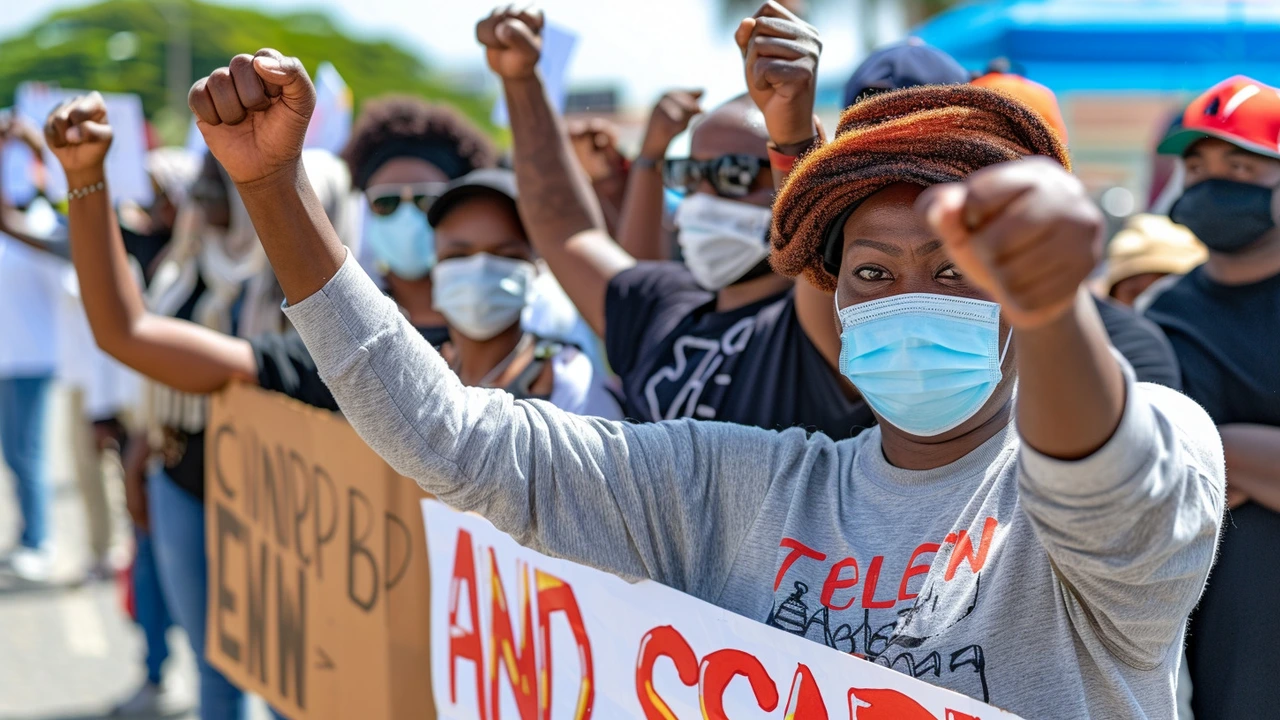Shehu Sani Urges President Tinubu to Pardon Detained #EndSARS Protesters, Invoking Democratic Ideals
 Jun, 13 2024
Jun, 13 2024
Shehu Sani Advocates for Pardoning #EndSARS Protesters
In a powerful plea directed towards Nigerian President Bola Tinubu, Shehu Sani, a former senator representing Kaduna Central, has made a stirring call for clemency towards the #EndSARS protesters still in detention. The request was made during a noteworthy dinner event held to mark the 2024 Democracy Day. Sani drew heavily upon Tinubu's own history of fighting for democratic values, underscoring the moral imperative of showing leniency to the detained youth demonstrators.
During his address, Sani highlighted the motivations behind the #EndSARS protests, which erupted in response to widespread police brutality and human rights abuses. The Special Anti-Robbery Squad, commonly known as SARS, had been implicated in numerous acts of violence, including extrajudicial killings, extortion, and torture. The youth-led movement sought not only the disbandment of this notorious police unit but also broader institutional reforms aimed at promoting justice and accountability within the Nigerian policing system.
Call to Recognize the Aspirations of Nigerian Youth
Sani emphasized that the youths who participated in these protests were motivated by a genuine desire to see positive change in their society. He pointed out that their actions were inspired by the same democratic principles that Tinubu himself had long championed. In fact, he referred to Tinubu as the 'father of protest in Nigeria,' a title earned through years of advocacy for democratic governance, civil liberties, and social justice.
According to Sani, pardoning the protesters would not only be an act of justice but also a strong signal from the Tinubu administration that it remains committed to fostering a society grounded in the values of freedom, equity, and justice. He articulated that nations are firmly held together by these principles rather than by mere symbolic gestures such as national anthems or constitutions.
Reflecting on the Struggle for Democracy
Sani's speech also served as a poignant reminder of the sacrifices made in the pursuit of democracy. Recounting the difficult and often dangerous path to democratic rule in Nigeria, he paid tribute to those who were forced into exile, unjustly imprisoned, or even lost their lives in the struggle. These sacrifices, he noted, underline the importance of maintaining a steadfast commitment to the ideals for which so many have fought.
Encouraging Tinubu to draw from his personal experiences and rich legacy, Sani urged the president to succeed in his responsibilities, thereby honoring those who endured hardships and injustices in the fight for a democratic Nigeria. Sani's appeal was not merely a political gesture but a heartfelt call to align state actions with the high moral standards that the nation's democratic heroes have established.

The Relevance of Pardoning Protesters
The #EndSARS movement, which captured global attention, brought to light critical issues of police misconduct and the need for comprehensive reform in Nigeria's law enforcement systems. By seeking justice for victims and demanding accountability, the protesters highlighted gaps that continue to exist within the country's governance framework. Sani's suggestion to pardon those still detained is thus rooted in an understanding that these youth were, in essence, acting as catalysts for necessary societal transformation.
Pardoning these protesters could serve multiple beneficial purposes. Firstly, it would act as a form of reconciliation, healing the wounds inflicted by the often violent crackdowns that characterized the protests. Secondly, it would uphold the principles of democracy by recognizing and validating the protesters' demands for rights and justice. Moreover, it would enhance the current administration's image both locally and internationally as a government that listens to and acts on the legitimate concerns of its citizens.
Building a Stronger Democratic Society
For many observers, the call for clemency resonates with the broader need to build a more inclusive and responsive government. Leadership involves not just the ability to wield power but also the capacity to empathize and act justly. By granting pardons, Tinubu could reaffirm his administration's dedication to these core values and, in turn, build stronger, more trust-laden relationships between the government and the citizenry.
Sani's proposal also touches upon the necessity of fostering a culture of accountability and reform within law enforcement agencies. Addressing the underlying causes that led to the #EndSARS protests involves more than just policy changes; it requires a commitment to continuous dialogue, community engagement, and systemic change.

Conclusion: Embracing the Spirit of Democracy
The appeal made by Shehu Sani is a profound reminder of the enduring struggle for justice and democracy in Nigeria. By urging President Tinubu to grant pardons to imprisoned #EndSARS protesters, Sani is calling for a return to the foundational values that have shaped the nation’s democratic journey. Such an act of clemency would not only honor the protesters’ fight for a better Nigeria but also solidify the administration’s role as a true custodian of democratic principles.
In navigating the complexities of governance, leaders must remain attuned to the voices of the populace, especially the youth who represent the future. Shehu Sani’s call is a plea for President Tinubu to embrace the spirit of forgiveness, unity, and forward-thinking – principles that are essential for the continued progress of Nigeria as a democratic state.